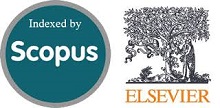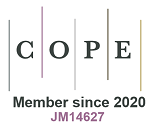The Mediating Effect of Knowledge Integration on the Relationship between Capability and Innovative Behaviour
Abstract
Doi: 10.28991/ESJ-2022-SIED-07
Full Text: PDF
Keywords
References
Calabrese, A., Dora, M., Levialdi Ghiron, N., & Tiburzi, L. (2022). Industry’s 4.0 transformation process: how to start, where to aim, what to be aware of. Production Planning and Control, 33(5), 492–512. doi:10.1080/09537287.2020.1830315.
Sanchez, M., Exposito, E., & Aguilar, J. (2020). Industry 4.0: survey from a system integration perspective. International Journal of Computer Integrated Manufacturing, 33(10–11), 1017–1041. doi:10.1080/0951192X.2020.1775295.
Yoshino, R. T., Pinto, M. M. A., Pontes, J., Treinta, F. T., Justo, J. F., & Santos, M. M. D. (2020). Educational Test Bed 4.0: a teaching tool for Industry 4.0. European Journal of Engineering Education, 45(6), 1002–1023. doi:10.1080/03043797.2020.1832966.
Bettencourt, L. A., Bond, E. U., Cole, M. S., & Houston, M. B. (2017). Domain-Relevant Commitment and Individual Technical Innovation Performance. Journal of Product Innovation Management, 34(2), 159–180. doi:10.1111/jpim.12339.
Muenjohn, N., Ishikawa, J., Muenjohn, P., Memon, M. A., & Ting, H. (2021). The effect of innovation and leadership on performance in China and Vietnam. Asia Pacific Business Review, 27(1), 101–110. doi:10.1080/13602381.2021.1850606.
Sony, M., & Naik, S. (2020). Critical factors for the successful implementation of Industry 4.0: a review and future research direction. Production Planning and Control, 31(10), 799–815. doi:10.1080/09537287.2019.1691278.
Bonfield, C. A., Salter, M., Longmuir, A., Benson, M., & Adachi, C. (2020). Transformation or evolution?: Education 4.0, teaching and learning in the digital age. Higher Education Pedagogies, 5(1), 223–246. doi:10.1080/23752696.2020.1816847.
Wu, N., & Liu, Z. K. (2021). Higher education development, technological innovation and industrial structure upgrade. Technological Forecasting and Social Change, 162, 120400. doi:10.1016/j.techfore.2020.120400.
Ra, S., Ahmed, M., & Teng, P. S. (2019). Creating high-tech ‘agropreneurs’ through education and skills development. International Journal of Training Research, 17(sup1), 41–53. doi:10.1080/14480220.2019.1629736.
Delera, M., Pietrobelli, C., Calza, E., & Lavopa, A. (2022). Does value chain participation facilitate the adoption of Industry 4.0 technologies in developing countries? World Development, 152, 105788. doi:10.1016/j.worlddev.2021.105788.
Yüksel, H. (2020). An empirical evaluation of industry 4.0 applications of companies in Turkey: The case of a developing country. Technology in Society, 63, 101364. doi:10.1016/j.techsoc.2020.101364.
Jones, C., & Pimdee, P. (2017). Innovative ideas: Thailand 4.0 and the fourth industrial revolution. Asian International Journal of Social Sciences, 17(1), 4–35. doi:10.29139/aijss.20170101.
Buasuwan, P. (2018). Rethinking Thai higher education for Thailand 4.0. Asian Education and Development Studies, 7(2), 157–173. doi:10.1108/AEDS-07-2017-0072.
Puriwat, W., & Tripopsakul, S. (2020). Preparing for industry 4.0-will youths have enough essential skills?: An evidence from Thailand. International Journal of Instruction, 13(3), 89–104. doi:10.29333/iji.2020.1337a.
Hughes, D. J., Lee, A., Tian, A. W., Newman, A., & Legood, A. (2018). Leadership, creativity, and innovation: A critical review and practical recommendations. Leadership Quarterly, 29(5), 549–569. doi:10.1016/j.leaqua.2018.03.001.
Maria Stock, R., Zacharias, N. A., & Schnellbaecher, A. (2017). How Do Strategy and Leadership Styles Jointly Affect Co-development and Its Innovation Outcomes? Journal of Product Innovation Management, 34(2), 201–222. doi:10.1111/jpim.12332.
Hoch, J. E. (2013). Shared Leadership and Innovation: The Role of Vertical Leadership and Employee Integrity. Journal of Business and Psychology, 28(2), 159–174. doi:10.1007/s10869-012-9273-6.
Al-Husseini, S., & Elbeltagi, I. (2016). Transformational leadership and innovation: a comparison study between Iraq’s public and private higher education. Studies in Higher Education, 41(1), 159–181. doi:10.1080/03075079.2014.927848.
Al-Husseini, S., El Beltagi, I., & Moizer, J. (2021). Transformational leadership and innovation: the mediating role of knowledge sharing amongst higher education faculty. International Journal of Leadership in Education, 24(5), 670–693. doi:10.1080/13603124.2019.1588381.
Carroll, L. S. L. (2017). A comprehensive definition of technology from an ethological perspective. Social Sciences, 6(4), 126. doi:10.3390/socsci6040126.
Kogut, B., & Zander, U. (1992). Knowledge of the Firm, Combinative Capabilities, and the Replication of Technology. Organization Science, 3(3), 383–397. doi:10.1287/orsc.3.3.383.
Lee, J., & Kim, M. (2016). Market-Driven Technological Innovation Through Acquisitions: The Moderating Effect of Firm Size. Journal of Management, 42(7), 1934–1963. doi:10.1177/0149206314535439.
Zhu, C. (2015). Organisational culture and technology-enhanced innovation in higher education. Technology, Pedagogy and Education, 24(1), 65–79. doi:10.1080/1475939X.2013.822414.
Kahn, K. B. (1996). Interdepartmental Integration: A Definition with Implications for Product Development Performance. Journal of Product Innovation Management, 13(2), 137–151. doi:10.1111/1540-5885.1320137.
Schartinger, D., Rammer, C., Fischer, M. M., & Fröhlich, J. (2002). Knowledge interactions between universities and industry in Austria: Sectoral patterns and determinants. Research Policy, 31(3), 303–328. doi:10.1016/S0048-7333(01)00111-1.
Shang, S. S. C., Yao, C. Y., & Liou, D. M. (2017). The effects of knowledge interaction for business innovation. R and D Management, 47(3), 337–351. doi:10.1111/radm.12130.
Liu, F. H. (2016). Interactions, innovation, and services. Service Industries Journal, 36(13–14), 658–674. doi:10.1080/02642069.2016.1272591.
Li, Y. Q., & Liu, C. H. (2019). The power of coworkers in service innovation: the moderating role of social interaction. International Journal of Human Resource Management, 30(12), 1956–1976. doi:10.1080/09585192.2017.1314310.
Wang, Z., & Wang, N. (2012). Knowledge sharing, innovation and firm performance. Expert Systems with Applications, 39(10), 8899–8908. doi:10.1016/j.eswa.2012.02.017.
Nonaka, I. (1994). A Dynamic Theory of Organizational Knowledge Creation. Organization Science, 5(1), 14–37. doi:10.1287/orsc.5.1.14.
Wang, S., & Noe, R. A. (2010). Knowledge sharing: A review and directions for future research. Human Resource Management Review, 20(2), 115–131. doi:10.1016/j.hrmr.2009.10.001.
Hu, L., & Randel, A. E. (2014). Knowledge Sharing in Teams: Social Capital, Extrinsic Incentives, and Team Innovation. Group and Organization Management, 39(2), 213–243. doi:10.1177/1059601114520969.
Sung, S. Y., & Choi, J. N. (2012). Effects of team knowledge management on the creativity and financial performance of organizational teams. Organizational Behavior and Human Decision Processes, 118(1), 4–13. doi:10.1016/j.obhdp.2012.01.001.
Vandavasi, R. K. K., McConville, D. C., Uen, J. F., & Yepuru, P. (2020). Knowledge sharing, shared leadership and innovative behaviour: a cross-level analysis. International Journal of Manpower, 41(8), 1221–1233. doi:10.1108/IJM-04-2019-0180.
Wang, C., & Hu, Q. (2020). Knowledge sharing in supply chain networks: Effects of collaborative innovation activities and capability on innovation performance. Technovation, 94–95, 102010. doi:10.1016/j.technovation.2017.12.002.
Al-Husseini, S., & Elbeltagi, I. (2018). The role of knowledge sharing in enhancing innovation: a comparative study of public and private higher education institutions in Iraq. Innovations in Education and Teaching International, 55(1), 23–33. doi:10.1080/14703297.2015.1122544.
John-Steiner, V. (2006). Creative Collaboration. Oxford University Press, Oxford, United Kingdom. doi:10.1093/acprof:oso/9780195307702.001.0001.
Tyler, B. B. (2001). Complementarity of cooperative and technological competencies: A resource-based perspective. Journal of Engineering and Technology Management - JET-M, 18(1), 1–27. doi:10.1016/S0923-4748(00)00031-X.
Blomqvist, K., & Levy, J. (2006). Collaboration capability a focal concept in knowledge creation and collaborative innovation in networks. International Journal of Management Concepts and Philosophy, 2(1), 31. doi:10.1504/ijmcp.2006.009645.
Un, C. A., Cuervo-Cazurra, A., & Asakawa, K. (2010). R&D collaborations and product innovation. Journal of Product Innovation Management, 27(5), 673–689. doi:10.1111/j.1540-5885.2010.00744.x.
Rodríguez, A., Nieto, M. J., & Santamaría, L. (2018). International collaboration and innovation in professional and technological knowledge-intensive services. Industry and Innovation, 25(4), 408–431. doi:10.1080/13662716.2017.1414752.
Kim, Y. C., & Rhee, M. (2018). Professional collaboration in technological innovation: a case of technology licensing of university inventions. Technology Analysis and Strategic Management, 30(11), 1351–1363. doi:10.1080/09537325.2018.1472758.
Godemann, J. (2008). Knowledge integration: a key challenge for transdisciplinary cooperation. Environmental Education Research, 14(6), 625–641. doi:10.1080/13504620802469188.
Grant, R. M. (1996). Toward a knowledge-based theory of the firm. Strategic Management Journal, 17(S2), 109–122. doi:10.1002/smj.4250171110.
Bhatti, W. A., Hussain, N., & Iqbal, J. (2013). Leadership role in integrating knowledge management enablers. World Applied Sciences Journal, 26(1), 55–60. doi:10.5829/idosi.wasj.2013.26.01.2453.
Jiang, Y., & Chen, C. C. (2018). Integrating Knowledge Activities for Team Innovation: Effects of Transformational Leadership. Journal of Management, 44(5), 1819–1847. doi:10.1177/0149206316628641.
Williams, P. (2012). The role of leadership in learning and knowledge for integration. Journal of Integrated Care, 20(3), 164–174. doi:10.1108/14769011211237500.
Christensen, R. (2002). Effects of technology integration education on the attitudes of teachers and students. Journal of Research on Technology in Education, 34(4), 411–433. doi:10.1080/15391523.2002.10782359.
Mitchell, V. L. (2006). Knowledge integration and information technology project performance. MIS Quarterly: Management Information Systems, 30(4), 919–939. doi:10.2307/25148759.
Tsou, H. T. (2012). The effect of interfirm codevelopment competency on the innovation of the e-service process and product: The perspective of internal/external technology integration mechanisms. Technology Analysis and Strategic Management, 24(7), 631–646. doi:10.1080/09537325.2012.705116.
Sun, Y., Tuertscher, P., Majchrzak, A., & Malhotra, A. (2020). Pro-socially motivated interaction for knowledge integration in crowd-based open innovation. Journal of Knowledge Management, 24(9), 2127–2147. doi:10.1108/JKM-04-2020-0303.
Huang, J. W., & Li, Y. H. (2009). The mediating effect of knowledge management on social interaction and innovation performance. International Journal of Manpower, 30(3), 285–301. doi:10.1108/01437720910956772.
Li, X., Wu, Z., Goh, M., & Qiu, S. (2018). Ontological knowledge integration and sharing for collaborative product development. International Journal of Computer Integrated Manufacturing, 31(3), 275–288. doi:10.1080/0951192X.2017.1407876.
Singh, P. J., & Power, D. (2014). Innovative knowledge sharing, supply chain integration and firm performance of Australian manufacturing firms. International Journal of Production Research, 52(21), 6416–6433. doi:10.1080/00207543.2013.859760.
Wu, Z. Y., Ming, X. G., He, L. N., Li, M., & Li, X. Z. (2014). Knowledge integration and sharing for complex product development. International Journal of Production Research, 52(21), 6296–6313. doi:10.1080/00207543.2014.923121.
Corallo, A., Lazoi, M., & Secundo, G. (2012). Inter-organizational knowledge integration in Collaborative NPD projects: Evidence from the aerospace industry. Knowledge Management Research and Practice, 10(4), 354–367. doi:10.1057/kmrp.2012.25.
Eslami, M. H., Lakemond, N., & Brusoni, S. (2018). The dynamics of knowledge integration in collaborative product development: Evidence from the capital goods industry. Industrial Marketing Management, 75, 146–159. doi:10.1016/j.indmarman.2018.05.001.
Yang, X., Dong, A., & Helander, M. (2012). The analysis of knowledge integration in collaborative engineering teams. Journal of Engineering Design, 23(2), 119–133. doi:10.1080/09544828.2011.567979.
Enberg, C. (2012). Enabling knowledge integration in coopetitive R&D projects - The management of conflicting logics. International Journal of Project Management, 30(7), 771–780. doi:10.1016/j.ijproman.2012.01.003.
Okhuysen, G. A., & Eisenhardt, K. M. (2002). Integrating knowledge in groups: How formal interventions enable flexibility. Organization Science, 13(4), 370–386. doi:10.1287/orsc.13.4.370.2947.
Huang, J. C., & Newell, S. (2003). Knowledge integration processes and dynamics within the context of cross-functional projects. International Journal of Project Management, 21(3), 167–176. doi:10.1016/S0263-7863(02)00091-1.
Guo, R., Cai, L., & Fei, Y. (2019). Knowledge integration methods, product innovation and high-tech new venture performance in China. Technology Analysis and Strategic Management, 31(3), 306–318. doi:10.1080/09537325.2018.1500688.
Yang, J. (2005). Knowledge integration and innovation: Securing new product advantage in high technology industry. Journal of High Technology Management Research, 16(1), 121–135. doi:10.1016/j.hitech.2005.06.007.
Li, H., Zhang, Q., & Zheng, Z. (2019). A Mediating Effect of Knowledge Integration and Moderating Effect of Organizational Task Environment. Enterprise Information Systems, 13(9), 1323–1346. doi:10.1080/17517575.2019.1638973.
Lin, B.-W., & Chen, C.-J. (2006). Fostering product innovation in industry networks: the mediating role of knowledge integration. The International Journal of Human Resource Management, 17(1), 155–173. doi:10.1080/09585190500367472.
Su, Z., Chen, J., & Wang, D. (2019). Organisational structure and managerial innovation: the mediating effect of cross-functional integration. Technology Analysis and Strategic Management, 31(3), 253–265. doi:10.1080/09537325.2018.1495324.
Barnová, S., Kožuchová, M., Krásna, S., & Osaďan, R. (2022). Teachers’ Professional Attitudes towards Inclusive Education. Emerging Science Journal, 6, 13–24. doi:10.28991/esj-2022-sied-02.
Fornell, C., & Larcker, D. F. (1981). Evaluating Structural Equation Models with Unobservable Variables and Measurement Error. Journal of Marketing Research, 18(1), 39–50. doi:10.1177/002224378101800104.
Schumacker, R. E., & Lomax, R. G. (2015). A Beginner’s Guide to Structural Equation Modeling (4th Ed.). Routledge, Oxfordshire, United Kingdom.
Lapsomboonkamol, S., Wiriyapinit, M., Bhattarakosol, P., & Rajchamaha, K. (2020). Motivational Factors for Knowledge Sharing in Co-Working Spaces. Proceedings of the 2020 the 3rd International Conference on Computers in Management and Business. doi:10.1145/3383845.3383857.
DOI: 10.28991/ESJ-2022-SIED-07
Refbacks
- The Mediating Effect of Knowledge Integration on the Relationship between Capability and Innovative Behaviour
- —
- —
- —
- —
- —
- —
- —
Copyright (c) 2022 Suthiluk Lapsomboonkamol, Noawanit Songkram, Pattarporn Thamsuwan, Nutthakorn Songkram






